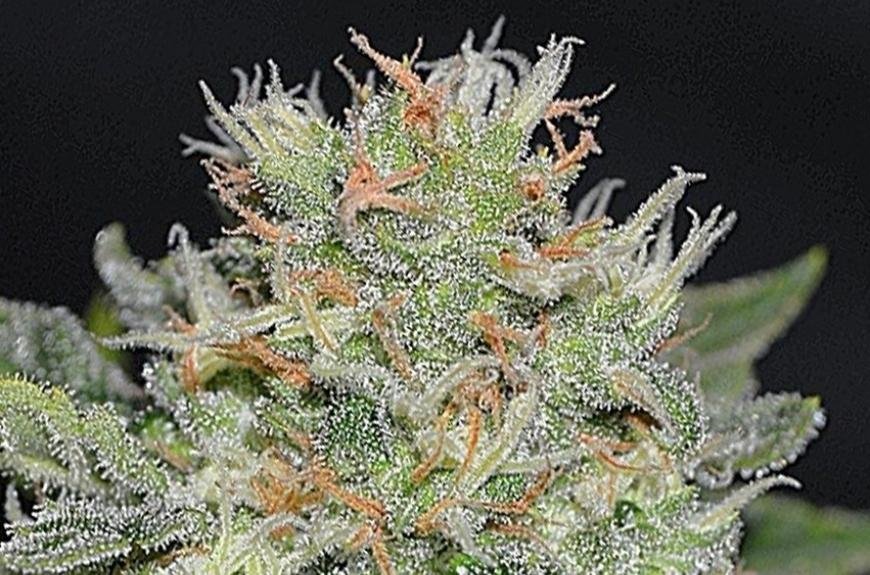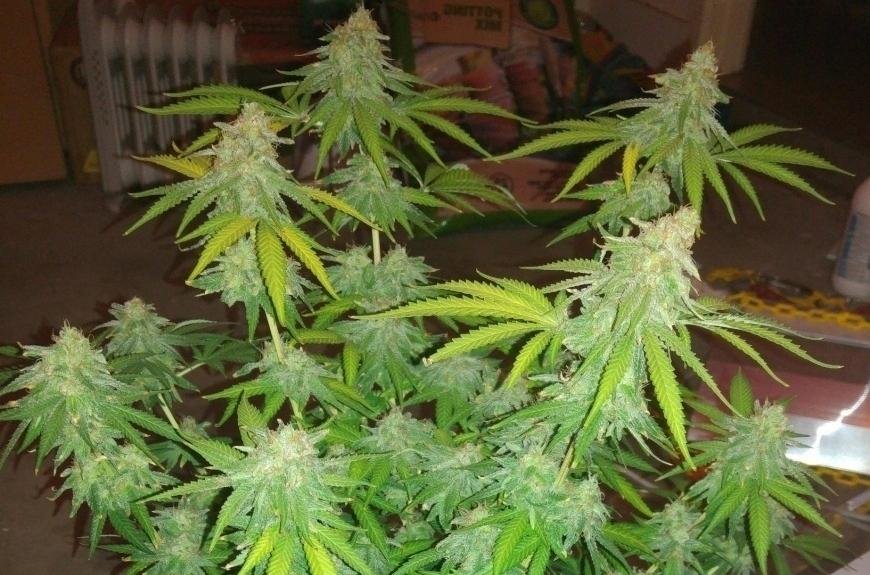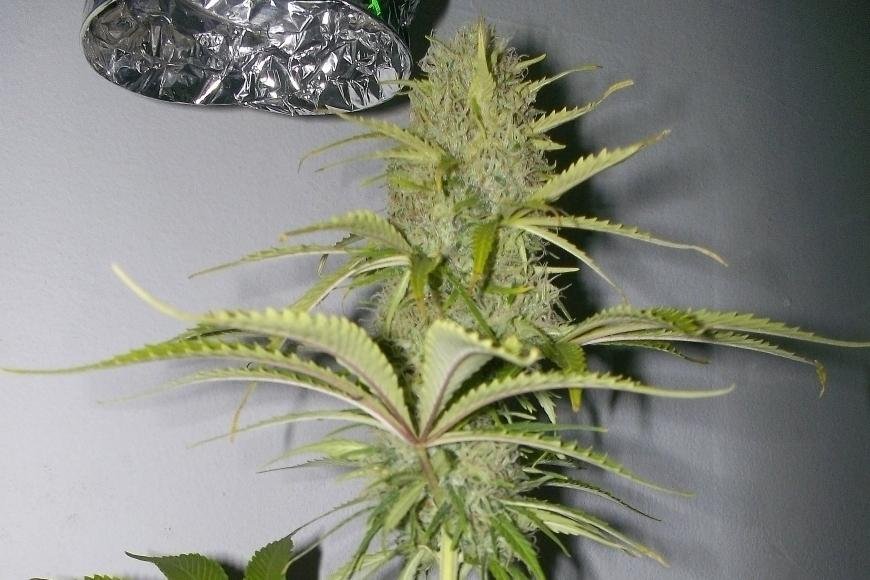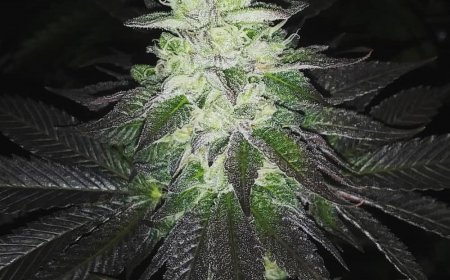Skunk Weed Strain
The history, genetics, and growing tips of the legendary skunk weed strain – a high-potency cannabis favorite with an earthy aroma.

This classic weed strain is a high-potency cannabis variety that has played an influential role in the development of modern-day strains. In this blog post, we will trace the origins of skunk weed and discuss how it has impacted modern cannabis strains, as well as exploring its THC levels, CBD content, and other cannabinoids.
From understanding the genetics and lineage behind skunk strains to learning about their ideal growing conditions, you'll gain valuable insight into what makes this classic weed so special. Additionally, we'll delve into THC levels, CBD content, and other cannabinoids present in various skunk varieties.
Finally, prepare yourself for a comprehensive look at the effects one can expect from smoking cannabis with these potent genetics as well as an exploration of the unique flavor profile associated with earthy aroma characteristic of skunk weed strains. Stay tuned for an enlightening journey through the world of this legendary cannabis strain.
Table of Contents:
- Overview of Skunk Weed Strain
- History of Skunk Weed Strain
- Genetics and Lineage of Skunk Weed Strain
- Growing of Skunk Weed Strain
- THC, CBD and Other Cannabinoid Levels
- Effects of Skunk Weed Strain
- Flavor of Skunk Weed Strain
- Frequently Asked Questions Skunk Weed Strain
- Conclusion
Overview of Skunk Weed Strain
The Skunk weed strain is a legendary hybrid marijuana strain that has had a significant impact on the cannabis world. This powerful and aromatic plant boasts an intriguing history, diverse genetics, and impressive effects. In this section, we will explore the characteristics and highlights of this iconic strain.
One of the most recognizable features is its distinctive appearance. The buds are dense with bright green leaves covered in orange hairs (pistils) and coated in sparkling trichomes. These resinous glands produce cannabinoids like THC (tetrahydrocannabinol) and CBD (cannabidiol).
The skunky smell, reminiscent of a skunk's spray, is one reason why it has become one of the popular strains with cannabis enthusiasts. The smell is often described as a blend of tart and soil-like aromas, with subtle hints of sugary fruitiness. This unique combination has made Skunk weed an all-time favorite among cannabis enthusiasts.
It is known for its high potency, typically ranging between 15-19% THC content. This makes it ideal for users seeking a powerful and long-lasting high that stimulates creativity.
Since its inception in the late 1970s, Skunk #1 has given rise to numerous variations and hybrids due to its stable genetics and desirable traits.
Skunk weed strain is a potent form of cannabis that has been around for decades, and its effects are well-known to many. Despite this long history, the precise origin of skunk weed remains unclear. Moving on from this overview, let's take a look at the historical background.
History of Skunk Weed Strain
The history is a fascinating tale that takes us back to the late 1970s. This iconic hybrid has its roots in diverse genetics from around the world, which were carefully combined by Sacred Seed Co., an innovative breeder with a passion for creating new and popular strains.
The journey began with three legendary landrace strains: Afghani, Acapulco Gold, and Colombian Gold. These strains represented some of the finest examples of cannabis from their respective regions, each bringing unique characteristics to the table. Afghani provided strong indica traits such as resilience and high resin production, while Acapulco Gold and Colombian Gold contributed sativa qualities like uplifting effects and vibrant flavors.
Sacred Seed Co.'s meticulous selective breeding process spanned several generations before they finally achieved their goal - a stable hybrid. The result was a groundbreaking strain that perfectly balanced indica and sativa properties, offering users an enjoyable mix of relaxation and stimulation.
- Crossbreeding: Since its creation, it has been used extensively in crossbreeding projects due to its desirable traits such as potency, aroma profile, growth structure, yield, and resistance to pests. This has led to the birth of countless Skunk crosses, making it a true cornerstone in cannabis genetics.
- Seed Banks: The original Skunk #1 was eventually passed on to various seed banks like Royal Queen Seeds, Dutch Passion, Flying Dutchmen, Nirvana Seeds, and Sensi Seeds. These establishments have continued the legacy by offering their own versions of this legendary strain, ensuring its availability for future generations of growers and consumers alike.
- Cannabis Culture: The influence of this strain can be felt throughout modern cannabis culture as well. Its name is often used as a synonym for high-quality marijuana due to its reputation for potency and unique aroma profile that combines sour skunky notes with subtle earthy undertones.
The history is an interesting one, with its origins and development being quite unique. Turning to the source and lineage of this specific strain, it is critical to how these components have impacted its present form.
Genetics and Lineage of Skunk Weed Strain
This strain is a true classic in the cannabis world, boasting an impressive genetic lineage that has contributed to its widespread popularity. Its unique blend of genetics from around the globe makes it stand out among other strains and gives it some truly remarkable characteristics.
One of the key components genetic makeup is Afghani Indica, which provides this hybrid with its strong foundation and robust growth traits. The Afghani influence contributes resilience against pests, diseases, and adverse growing conditions, making it a popular choice for novice growers seeking hardy plants.
The second component in this legendary strain's gene pool comes from Acapulco Gold Sativa. This Mexican landrace strain lends its uplifting effects also providing some subtle earthy notes to complement the pungent skunky aroma that defines this iconic hybrid.
Rounding out the trinity of global genetics found is Colombian Gold Sativa, another potent landrace variety hailing from South America. Colombian Gold adds a touch of fruity sweetness to both flavor profile and high-energy buzz associated with consuming this powerful marijuana strain.
With a better understanding genetics and lineage, we can now move on to exploring how this unique strain is grown.

Growing of Skunk Weed Strain
With its resilient nature and high yields, is a popular choice among both novice and experienced growers. This section will provide information on the best practices for growing this high-potency cannabis plant.
Choosing between indoor and outdoor growing may be contingent upon different elements, such as climate, space availability, and personal inclinations. It can thrive in both environments but tends to produce higher yields when grown indoors under controlled conditions.
This strain prefers a temperate climate with consistent temperatures ranging from 65°F to 80°F (18°C to 27°C). It's essential to maintain proper humidity levels throughout the growth cycle; too much moisture may lead to mold or mildew issues while insufficient humidity can cause slow growth or reduced yield.
- Nutrients: Like most cannabis breeding, it requires an adequate supply of nitrogen during vegetative growth stages followed by phosphorus-rich nutrients during flowering stage. Use organic fertilizers like bat guano or worm castings for optimal results.
- Soil: A well-draining soil mix rich in organic matter is ideal for cultivation. Consider using a blend containing perlite or coco coir that promotes healthy root development and nutrient absorption.
Growing this train requires attention to detail and proper care, but with patience and practice, you'll be rewarded with potent buds boasting its signature aroma and effects.
Growing can be a rewarding and enjoyable experience, but it requires knowledge of the plant's needs to ensure success. With an understanding of THC, CBD and other cannabinoid levels in this particular strain, growers can better understand how to cultivate their crop for maximum yield and potency.
THC, CBD and Other Cannabinoid Levels
The skunk weed strain is a potent hybrid with a unique cannabinoid profile that sets it apart from other strains. It boasts an impressive balance of THC, CBD, and other cannabinoids which contribute to its wide range of effects.
Skunk #1 has an average THC content of around 15%-19%, making it moderately potent compared to some modern cannabis breeding that can reach up to 30% or more. However, this balanced potency allows users to experience the full spectrum of benefits without being overwhelmed by excessive psychoactive effects.
In addition to its moderate THC, skunk weed strain typically contains low amounts of CBD - usually less than 1%.
It's important to note that the exact levels of cannabinoids in skunk weed strain can vary depending on factors such as cultivation methods, plant genetics, and environmental conditions. It is advised to check the laboratory analysis of your particular cannabis product before using it, as levels of cannabinoids can vary based on growth conditions, genetics, and other elements.
The THC, CBD and other cannabinoid levels of skunk weed strain can vary greatly depending on the specific plant used to produce it. Grasping the impacts of this particular strain is essential to figure out if it can be advantageous for a person's requirements. With that said, let us now take a closer look at what the effects are like.
Effects of Skunk Weed Strain
The skunk weed strain, with its unique blend of genetics, offers a range of effects that can be both enjoyable and therapeutic for users. In this section, we will delve into the various effects one might experience when consuming this legendary hybrid.
One of the most notable effects of the skunk weed strain is its ability to induce feelings of euphoria and happiness in users. This uplifting sensation often leads to increased creativity as well as an enhanced sense of focus. Not surprisingly, skunk weed has become a go-to for many creative types seeking out an extra spark of inspiration.
In addition to boosting creativity, skunk weed has also been known to promote social interaction among users due to its energizing properties. The high-energy buzz experienced by those who consume this strain makes it ideal for gatherings or parties where lively conversation is encouraged.
While many users enjoy the positive effects of skunk weed, it's essential to be aware of potential side effects that may arise from its consumption. These can include:
- Dry mouth or eyes - easily remedied by staying hydrated and using eye drops if necessary.
- Anxiety or paranoia - some individuals might experience heightened anxiety levels due to the strain's potency; starting with a lower dose is recommended for those prone to such reactions.
In conclusion, understanding both the benefits and possible drawbacks of consuming skunk weed allows users to make informed decisions about whether this legendary hybrid strain is right for them.
Skunk weed strain can have a variety of effects on the user, depending on their tolerance and usage. Therefore, it is essential to practice responsible use of any substance. Moving onto the next heading, let us explore the flavor of skunk weed strain in more detail.
Flavor of Skunk Weed Strain
The flavor profile of the skunk weed strain is a crucial aspect that makes it so popular among cannabis enthusiasts. Its unique taste and aroma have captivated users for decades, making it an essential part of many hybrids and crossbreeds. In this section, we will delve into the distinct flavors and aromas associated with skunk weed strain.
As its name suggests, it boasts a pungent aroma reminiscent of its namesake animal. This strong scent comes from the terpenes present in the plant, which are responsible for producing its signature smell. Myrcene is the principal terpene present in skunk weed, with caryophyllene and limonene trailing behind.
Beyond the unmistakable skunky odor, you can also detect subtle earthy notes that add depth to its fragrance. Some users even report hints of sweet fruitiness mingling with these more potent smells.
The taste experience offered by skunk weed strain is just as memorable as its aroma. Upon inhaling this hybrid's smoke or vapor, you'll be greeted by a bold mix of flavors that perfectly complement each other:
- Sourness: A tangy sourness hits your palate first - thanks to high levels of myrcene - providing an invigorating sensation before giving way to other tastes.
- Sweetness: Following closely behind are mild fruity undertones (likely due to limonene) that provide balance against the initial tart burst on your tongue.
- Pungency: Lastly but certainly not least is a robust earthiness that lingers long after the other flavors have faded, leaving a satisfying and well-rounded finish.
Overall, it's unique combination of bold tastes and aromas has made it a favorite among cannabis connoisseurs. Its complex flavor profile not only makes for an enjoyable smoking experience but also serves as a testament to its rich genetic heritage.
The flavorful world of skunk weed strain is one worth exploring for any cannabis enthusiast seeking new sensory experiences. By understanding its distinct aroma and taste characteristics - along with potential food pairings - you'll be better equipped to appreciate all that this iconic hybrid has to offer.

Frequently Asked Questions Skunk Weed Strain
What is all about Skunk weed?
Skunk weed is a legendary cannabis strain known for its strong, pungent aroma and high THC content. It has gained popularity among recreational users due to its euphoric and uplifting effects. The name "skunk" comes from the distinctive smell that resembles a skunk's spray.
Is Skunk a good strain?
Yes, Skunk is considered a good strain due to its potency, unique flavor profile, and balanced effects. It offers both mental stimulation and physical relaxation which makes it suitable for various occasions. Additionally, it has been used as the genetic base for many popular hybrid strains.
What are the effects of Skunk weed?
Skunk weed produces an array of effects including euphoria, creativity enhancement, uplifted mood, increased focus or energy levels in low doses while providing relaxation and pain relief at higher doses. Some users may also experience dry mouth or eyes as side-effects.
What are the real Skunk strains?
Real skunks strains include Super Skunk, Early Pearl x Northern Lights x Mexican Haze, Skunktastic, Shiva Skunker, and Skunk #1. These strains share the characteristic skunky aroma, potent effects, and are descendants of the original Skunk lineage.
Conclusion
In conclusion, Skunk #1 is a unique hybrid marijuana strain that has been influencing cannabis on a global scale since its emergence in the late 1970s. Its diverse genetic makeup from around the world has made it a highly sought-after strain for recreational use. It offers an energetic buzz. The flavor profile combines sour skunkiness with subtle earthy notes for an enjoyable experience every time you use this particular strain of weed.






































































































































